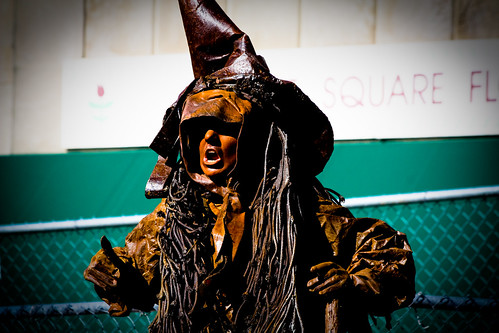I purchased Logic Express 9 with a goal of transcribing some piano solos. Over the past few years I've played with Garageband and even enjoyed the fun sounds that came with it. However, my passion has always been piano solos and Garageband wasn't cutting it. It lacked a few very simple features and their absence could only be explained by Apple's greed requiring a $179 investment for the upgrade.
The first missing necessity in Garageband is a step editor. This allows the user to play the piano while telling the program the duration of each note. If I need to enter in a few dozen 8th notes, for example, a step editor is vital. Without it my options are to play it live, and fix minor errors by hand. No one has the timing of a metronome. Or, I could enter the notes in with the mouse. If I do this I mind as well get out a pen and paper and draw the circles and lines myself. I suppose I'd be using the bubble-filling scan-tron skills I learned from grade school.
The second missing necessity in Garageband is mid-song changes to tempo or time-signature. For simple songs this is not much of a problem but severely limits more complicated pieces. Apple released a Symphony jam pack adding full orchestra sounds, but imagine if Beethoven or Bruckner couldn't change tempo during a song? They wouldn't need conductors I suppose.
Upgrading to Logic Express fixed all of this, but added a whole lot of frustrations. The step-editor is less-than-intuitive and works only when it wants to. I clearly have a quarter-note highlighted but half-notes come up, if anything at all. If I make a mistake I can hit ctrl-z as expected, but my cursor doesn't return to when and where I started. This is completely illogical.
The tempo can be changed at any point in the song but my only experience with it almost led to tears. After trying to gradually slow the tempo, Logic unexpectedly quit. On its own this isn't a huge deal as it does have an auto-save feature. However, the score was completely jumbled in the recovered file. The time signature was written as "+4/4" and all notes were shoved into one giant measure. Every attempt to change the time signature resulted in the program unexpectedly quitting again. I stubbornly tried to change the time signature a few more times and every time it quit, though no longer unexpectedly. The only saving grace was the fact that Logic saves several iterations of the piece throughout it's life. I was able to cut-and-paste the later half of my piece from the infinitely long corrupted measure into the recovered iteration from before I attempted to change tempo.
I'm sure Logic has great features for mixing music and creating phat beats. However, it fails at what I'd consider very basic. There are software packages created just for this; Sibelius comes to mind. However, I was hoping Logic would live up to its logical name. It doesn't.
...not a rant for the sake of ranting, but a place for constructive, yet blunt, criticism.

Sunday, February 20, 2011
Monday, January 24, 2011
Castlevania: Lord of Shadow Needs Some Camera Help
I'm almost through with the game and for the most part I love it. It combines everything I loved about Castlevania games with everything I loved about the Onimusha and Tomb Raider series. The only negative is the lack of an adjustable camera. I may be spoiled with the excellent control system of the Modern Warfare series but the camera made this game extremely frustrating at times.
I let this go as a minor frustration until the level "Titan Graveyard". While the game is for the most part linear, this level made me guess at every turn. To add salt to a wound the penalty for these necessary guesses was a slow death in the poison fog. This relatively small level took me over an hour to get through and it required the help of 2 YouTube videos. After watching these videos the solutions were not interesting. I did not have a "why didn't I think of that" moment. Instead, the solutions were blind turns that require no skill, but luck.
I let this go as a minor frustration until the level "Titan Graveyard". While the game is for the most part linear, this level made me guess at every turn. To add salt to a wound the penalty for these necessary guesses was a slow death in the poison fog. This relatively small level took me over an hour to get through and it required the help of 2 YouTube videos. After watching these videos the solutions were not interesting. I did not have a "why didn't I think of that" moment. Instead, the solutions were blind turns that require no skill, but luck.
Subscribe to:
Posts (Atom)